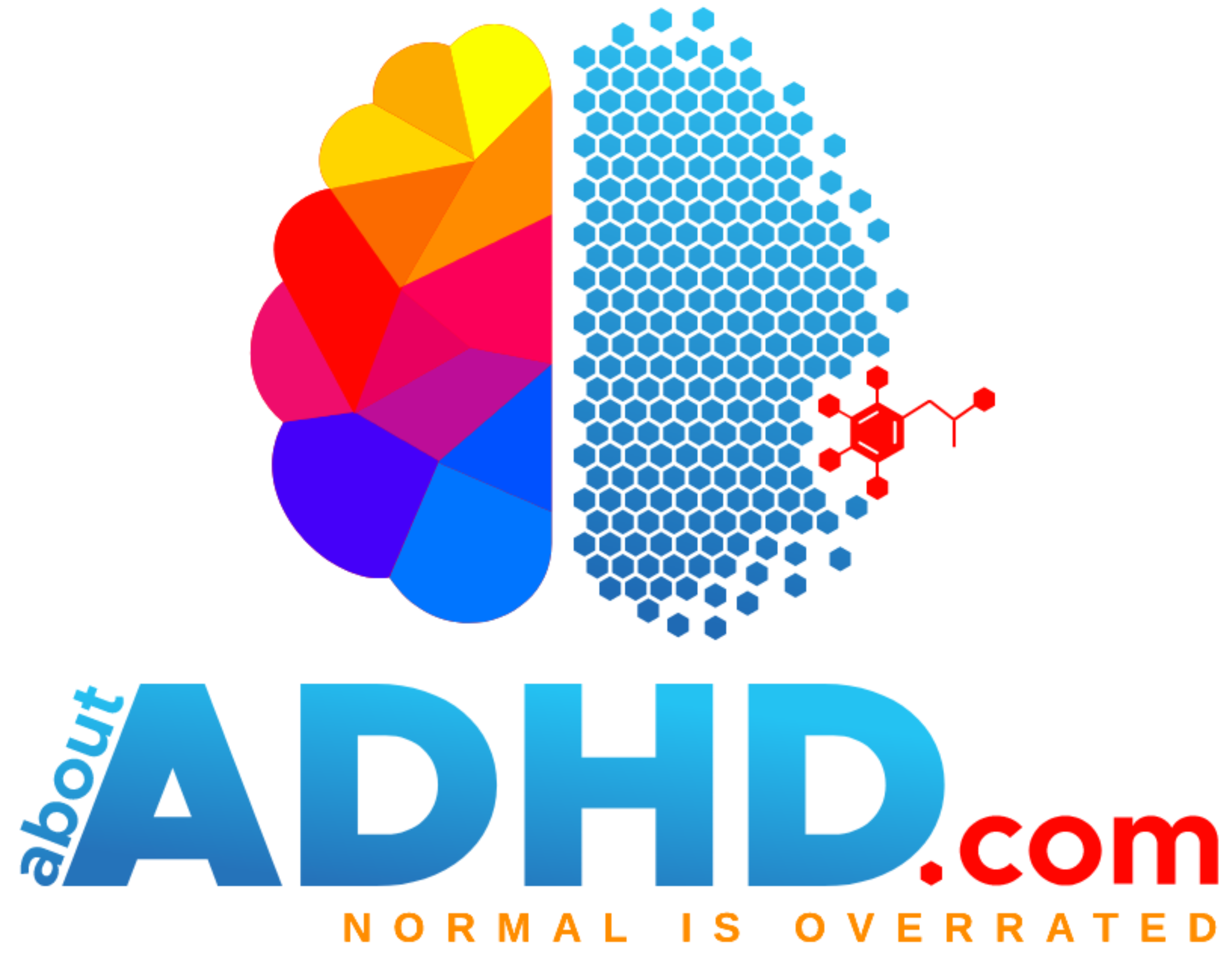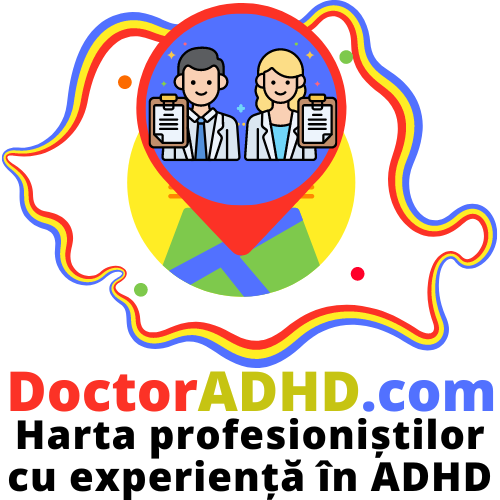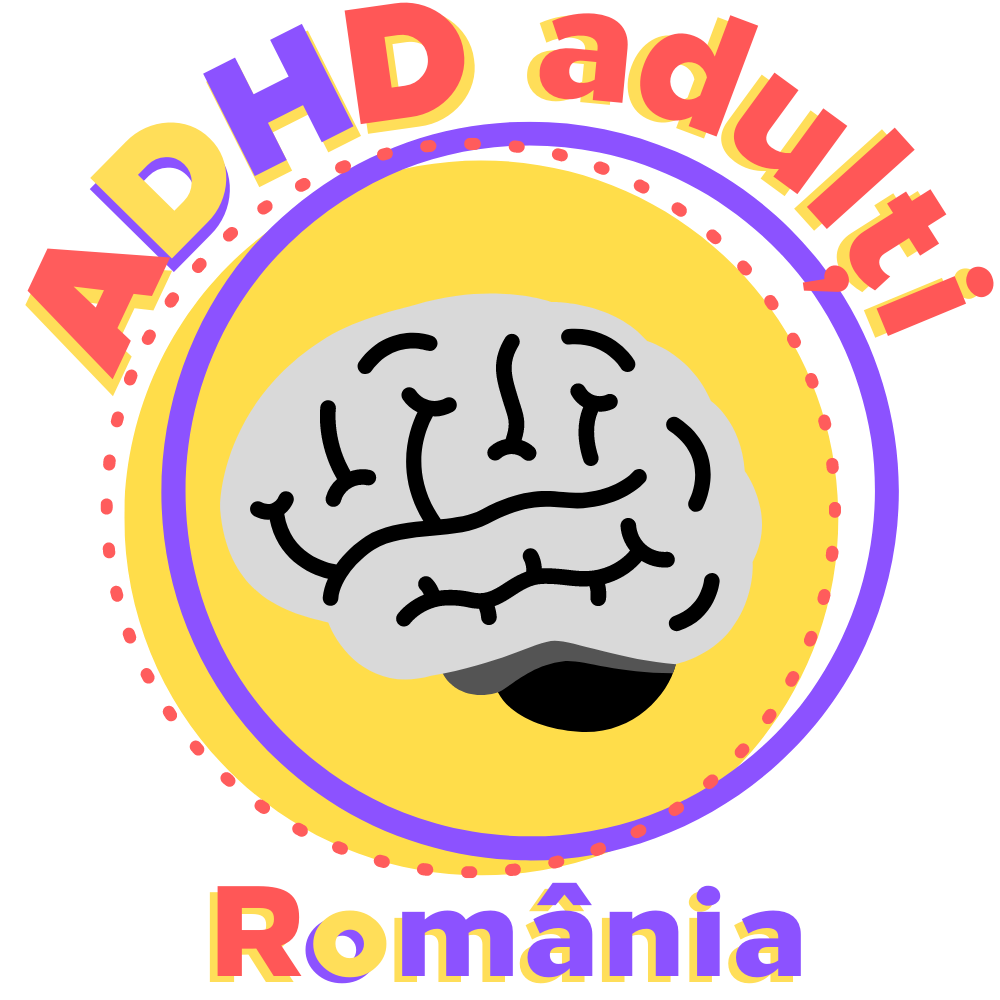ADHD (attention deficit hyperactivity disorder) is a neurodevelopmental disorder that affects both children and adults. Although it is more commonly diagnosed in children, a growing number of studies have shown that ADHD can persist into old age and can even be diagnosed in older adults.
However, research on ADHD in later life is relatively limited compared to the extensive literature on children and younger adults.
Prevalence of ADHD in older people
Although research on the incidence of ADHD in the elderly is relatively limited compared to the extensive literature on younger children and adults, there are a few studies that have examined the prevalence of ADHD in this age group.
In a Dutch study of 1813 respondents aged 18-75 years, the prevalence of ADHD based on self-report was estimated to be 1-2.5%, with no evidence of a decrease in symptom intensity in older age groups (Kooji et. al., 2005).
In a more recent Dutch study, the Dutch Longitudinal Aging Study Amsterdam (LASA) among 1494 adults aged 60-94 years, diagnostic interviews were used after screening. The prevalence of ADHD was estimated at 2.8%, with men and women reporting similar levels of ADHD symptoms (Michielsen, M. et al., 2012).
In a Swedish study among 2500 people aged 65-80 years, an ADHD prevalence rate of 3.3% was found based on reported childhood ADHD symptoms (Guldberg-Kjar et. al, 2013).
Coping with ADHD in later life
Several studies have reported that older adults with ADHD have higher rates of psychiatric comorbidities, such as anxiety and depression, compared to adults without ADHD. In what follows, we will illustrate in detail the main areas of dysfunction and life difficulties experienced by older adults with ADHD and the studies together that highlight them.
Cognitive difficulties
Studies suggest that older adults with ADHD may experience greater cognitive decline compared to their peers without ADHD. They may struggle with memory, attention, and executive functioning, which can affect their ability to perform daily tasks and maintain independence (Torgersen, Gjervan, & Rasmussen, 2006).
In the Dutch Population Study (LASA), different tasks in the executive function domains (information processing speed, attention and working memory) were assessed (Semeijn EJ, Korten NC, Comijs HC, et al., 2015). In this study, ADHD in older adults was negatively correlated with performance in attention/working memory. However, after controlling for depressive symptoms, this association disappeared. Therefore, the association between ADHD in older adults and cognitive functioning was mainly due to depressive symptoms.
Similar findings were found in the Australian Personality and Health Across the Lifespan (PATH) study, which showed that in older adults with ADHD (68-74 years), depression is a stronger predictor of poorer cognitive performance than in younger adults with ADHD (48-52 years) (Das D, Cherbuin N, Easteal S, et al., 2014).
Results from the Dutch LASA study further showed that younger older adults (60-70 years) reported more ADHD symptoms than the older group (71-94 years) (Michielsen, M. et al., 2012). This may be an indication of early cognitive decline in those with ADHD symptoms. Similar findings were found in the Australian PATH project, in which a screening checklist was used (Das D, Cherbuin N, Easteal S, et al., 2014).
At present, it is still unclear whether ADHD precedes cognitive impairment in dementia or whether dementia is a stand-alone disorder that often occurs late in life due to cognitive decline with independent causal factors. Studies have shown that in both Lewy body dementia (LBD) and ADHD, a hypo-dopaminergic and noradrenergic substrate appears to play a central role in the development of dementia (Dougherty DD, Bonab AA, Spencer TJ, 1999; Durston S, Tottenham NT, Thomas KM, et al., 2003).
Also, one study showed that the frequency of a retrospective diagnosis of ADHD in childhood was higher among patients with LBD than among older adults without LBD (Golimstok A, Rojas J, Romano M, et al. 2011).
Social functioning and emotional regulation
ADHD can impact social functioning in older adults, leading to difficulties in forming and maintaining interpersonal relationships, increased risk of social isolation, and communication challenges (Michielsen et al., 2012). Older adults with ADHD may have difficulty regulating emotions, leading to mood swings, irritability, and increased vulnerability to stress and anxiety (Asherson, Chen, Craddock, & Taylor, 2007).
In an American qualitative study, nine older women aged 62 to 91, all diagnosed with ADHD after their 60th birthday, participated (Henry E, Hill Jones S, 2012). All nine women had a comorbid depressive disorder, and seven had a comorbid anxiety disorder. Most of the women had experienced rejection from peers in the past as well as in the present. Some women also reported feeling different from others since childhood.
In the Dutch LASA study, for 17 adults aged 67-86 from the general Dutch population, it was examined how ADHD might have affected their lives while participants were unaware of their diagnosis (Michielsen, M. et al., 2015). About half reported that they had low self-esteem, overstepped boundaries and felt different from others during their lifetime.
Occupational and financial challenges
Older adults with ADHD may have a history of poor career outcomes and may struggle with job performance, time management, and organization. This can lead to financial instability and reduced quality of life (Kooij et al., 2019).
In an American study, 24 older adults with ADHD with an average age of 66 (68% male) were asked about their quality of life (Brod M. et al., 2012). Subjects reported lower income due to impulsive spending, lower educational attainment, poorer job performance, and greater social isolation.
ADHD diagnosis in older people
Michielsen, M. et al., 2012 examines the prevalence of ADHD in older adults and highlights the challenges in diagnosing the condition in this population. The authors find that ADHD is often underdiagnosed or misdiagnosed in older adults, which can lead to inadequate treatment and support for those affected.
ADHD in older adults is often accompanied by other mental health conditions, such as depression, anxiety, and substance use disorders, which can complicate diagnosis and treatment (Davidson, 2008).
This may be due to several reasons, such as limited awareness among health professionals, overlap of symptoms with other conditions related to advancing age (such as cognitive decline, dementia or depression) and lack of standardised diagnostic criteria for older adults (Ivanchak et al., 2011; Kooij et al., 2016).
Stevens et al., 2017 explore the effects that advancing age exerts on ADHD symptoms and discuss whether older adults may need treatment for ADHD. Among other things, the study authors found that older adults may develop coping strategies throughout life that can mask ADHD symptoms, which can lead to under-diagnosis and under-treatment of this population segment.
Late-onset ADHD
Some studies have explored the concept of late-onset ADHD, which refers to individuals who first develop ADHD symptoms in adulthood, including older ages. The validity of this concept remains controversial, as some researchers argue that these cases may represent another neurodevelopmental disorder or may be the result of other medical conditions.
However, there are studies that take the exploration of this phenomenon seriously, attributing the causes to a combination of factors such as increased life demands, changes in cognitive function or other age-related factors that unmask previously undetected ADHD-specific symptoms.
Moffitt T. et al. developed a longitudinal study that questions the assumption that all adult ADHD originates in childhood. The authors found that adult ADHD cases were largely independent of childhood ADHD, suggesting that there may be different types of ADHD with distinct developmental trajectories.
The authors found that adult ADHD cases were largely independent of childhood ADHD, suggesting that there may be different types of ADHD with distinct developmental trajectories (Moffitt, T. et al., 2015).
Agnew-Blais, J. C. et al. explore the persistence, remission, and emergence of ADHD symptoms in young adults. The researchers found that a significant proportion of young adults who met criteria for ADHD did not have a history of ADHD in childhood. They emphasize the importance of considering the possibility of ADHD in adulthood during clinical assessments (Agnew-Blais, J. C. et al., 2016).
Caye, A. et al. investigate the trajectories of ADHD symptoms from childhood to young adulthood, supporting the existence of a late-onset ADHD subtype. The authors found that a significant number of individuals in their sample who met criteria for ADHD in young adulthood did not meet criteria in childhood (Caye, A. et al., 2016).
In an editorial, the authors discuss the implications of recent findings on ADHD in adults. They emphasize the importance of considering the possibility of ADHD in adulthood and call for more research to better understand the etiology, diagnosis, and treatment of ADHD (Faraone, S. V., & Biederman, J., 2016).
Another study challenges the concept of late-onset ADHD by conducting repeated and comprehensive assessments of participants aged 10 to 25 years. The authors found that most cases of apparently late-onset ADHD are better explained by subthreshold symptoms in childhood or other mental health conditions (Sibley, M. H. et al., 2017).
It is important to note that the concept of ADHD onset later in life remains debated and that further research is needed to understand the reasons behind the onset of ADHD symptoms in older adults without a history of specific symptoms in childhood.
Developmental diagnostic criteria
Researchers point out that diagnostic criteria for ADHD, which were developed primarily for children, may not accurately capture the manifestations of the disorder in older adults. Consequently, they believe that diagnostic criteria and assessment tools specific to this age group are needed to objectively diagnose and effectively treat ADHD in the elderly.
Although there is a growing body of research on ADHD in older adults, diagnostic criteria specific to this age group are still under development. Most studies address the need for age-specific diagnostic criteria, but few propose explicit criteria for diagnosing ADHD in the elderly.
Michielsen, M. et al. investigate the prevalence of ADHD in older adults in the Netherlands and highlight the need to improve diagnostic tools and criteria for this population. The authors suggest that existing diagnostic criteria may not capture the full range of ADHD symptoms in older adults, leading to under-diagnosis and inadequate treatment (Michielsen, M. et al., 2012).
Goodwin, G. M., & Young, A. H. have developed a guideline, which although focused on bipolar disorder, provides an example of an approach to developing diagnostic criteria and treatment guidelines for older adults with psychiatric disorders. It emphasizes the importance of considering age-related factors, such as medical comorbidities and cognitive decline, when diagnosing and treating mental health disorders in older adults (Goodwin, G. M., & Young, A. H., 2016).
The updated European Consensus Statement on the Diagnosis and Treatment of ADHD in Adults, updated at the end of 2018 discusses the challenges of diagnosing and treating ADHD in adults, particularly older adults, and highlights the need for age-specific diagnostic criteria and assessment tools. The authors provide an updated consensus statement on the diagnosis and treatment of ADHD in adults in Europe, taking into account differences in symptom presentation and functional impairment across the lifespan (Kooij et al., 2018).
Treatment of older patients with ADHD
Despite all these difficulties, pharmacological and non-pharmacological treatments, information and social support can help manage symptoms and improve quality of life.
Pharmacological interventions
Stimulant medications, such as methylphenidate and amphetamine, are commonly prescribed for ADHD and have been shown to be effective in older adults. Given changes in the rate of drug metabolism and the higher potential for side effects, some professionals believe that lower doses and more cautious titration may be needed (Torgersen et al., 2008; Kooij et al., 2016).
One study describes a 67-year-old woman with attention deficit disorder (Da Silva MA, Louza M, 2008). She was treated with three daily doses of 10 mg methylphenidate. After 2 weeks, she and her family reported a much greater improvement in concentration and insight into daily activities.
A similar experience was described in a 55-year-old man with ADHD (Biederman J., 1998). Using three daily doses of 10 mg of methylphenidate, he reported an immediate effect that helped him concentrate and complete tasks.
An 11-patient pilot study using methylphenidate was conducted in Israel in ADHD patients aged 56 to 70 years using different daily doses of methylphenidate, ranging from 50 to 108 mg/day (Manor I, Rozen S, Zemishlani Z, et al., 2011). Nine of the 11 patients responded to medication.
In another open-label study of 113 ADHD patients over the age of 50 who were treated with ADHD medication, there was a clinical response to symptoms of inattention (Lensing MB, Zeiner P, Sandvik L, et al., 2015).
A Dutch case study reported the treatment of an 81-year-old man with ADHD usingdexamphetamine (Standaert W, Kooij JJ, Kok RM, 2010). The patient’s symptoms improved most using a 3-hourly dosing schedule with short-acting dexamphetamine. After 4 weeks, the severity of ADHD symptoms was reduced, as confirmed by his wife. Side effects (nervousness and palpitations) were present at the beginning of treatment, but disappeared after a few weeks.
Cognitive Behavioural Therapy (CBT)
CBT can help patients develop organisational skills, time management strategies and emotional regulation techniques. Researchers show that CBT can be adapted for older people and thus become effective, especially in conjunction with psychoeducation by providing information about the disorder to patients and their families (Michielsen et al., 2015; Safren et al., 2010).
Social support
Wiggins et al. highlight that older adults with ADHD can benefit from social support, which can help them better manage their symptoms and reduce feelings of isolation. This can include support from friends, family members or organised support groups (Wiggins et al., 2019).
Conclusion
In conclusion, diagnosing ADHD in older adults can be difficult due to the overlap of symptoms with other age-related conditions and the lack of standardised diagnostic criteria. Treatment approaches for older adults with ADHD include pharmacological and non-pharmacological interventions, social support, and lifestyle modifications.
The literature highlights the need for further research to better understand and address the unique needs of older adults with ADHD.
Bibliography
Agnew-Blais, J. C., Polanczyk, G. V., Danese, A., Wertz, J., Moffitt, T. E., & Arseneault, L. (2016). Evaluation of the persistence, remission, and emergence of attention-deficit/hyperactivity disorder in young adulthood. JAMA Psychiatry, 73(7), 713-720. https://doi.org/10.1001/jamapsychiatry.2016.0465
Asherson, P., Chen, W., Craddock, B., & Taylor, E. (2007) Adult attention-deficit hyperactivity disorder: recognition and treatment in general adult psychiatry. The British Journal of Psychiatry, 190(1), 4-5. https://doi.org/10.1192/bjp.bp.106.026484
Caye, A., Rocha, T. B. M., Anselmi, L., Murray, J., Menezes, A. M. B., Barros, F. C., Gonçalves, H., Wehrmeister, F., Jensen, C. M., Steinhausen, H. C., Swanson, J. M., Kieling, C., & Rohde, L. A. (2016). Attention-deficit/hyperactivity disorder trajectories from childhood to young adulthood: Evidence from a birth cohort supporting a late-onset syndrome. JAMA Psychiatry, 73(7), 705-712. https://doi.org/10.1001/jamapsychiatry.2016.0465
Davidson, M. A. (2008). ADHD in adults: a review of the literature. Journal of attention disorders, 11(6), 628-641. https://doi.org/10.1177/1087054707310878
Ivanchak, N., Abner, E. L., & Carr, S. A. (2011). Attention-deficit/hyperactivity disorder in older adults: Prevalence and possible connections to mild cognitive impairment. Current Psychiatry Reports, 13(5), 381-387. https://doi.org/10.1007/s11920-011-0219-4
Kooij, J. J. S., Aeckerlin, L. P., & Buitelaar, J. K. (2001). Functioning, comorbidity and treatment of 141 adults with attention deficit hyperactivity disorder (ADHD) at a Psychiatric Outpatients’ Department. European Psychiatry, 16(3), 162-169. https://doi.org/10.1016/S0924-9338(01)00562-0
Kooij, J. J. S., Bijlenga, D., Salerno, L., Jaeschke, R., Bitter, I., Balázs, J., … & Caci, H. (2019). Updated European Consensus Statement on diagnosis and treatment of adult ADHD. European Psychiatry, 56, 14-34. https://doi.org/10.1016/j.eurpsy.2018.11.001
Kooij JJ, Buitelaar JK, Van Den Oord EJ, et al. Internal and external validity of attention-deficit hyperactivity disorder in a population- based sample of adults. Psychol Med. 2005;35(6):817-827.
Kooij, J. J. S., Buitelaar, J. K., van den Oord, E. J., Furer, J. W., Rijnders, C. A., & Hodiamont, P. P. (2005). Internal and external validity of attention-deficit hyperactivity disorder in a population-based sample of adults. Psychological Medicine, 35(6), 817-827. https://doi.org/10.1017/S003329170400337X
Kooij, J. J. S., Michielsen, M., Kruithof, H., & Bijlenga, D. (2016). ADHD in old age: A review of the literature and proposal for assessment and treatment. Expert Review of Neurotherapeutics, 16(12), 1371-1381. https://doi.org/10.1080/14737175.2016.1255553
Michielsen, M., Comijs, H. C., Semeijn, E. J., Beekman, A. T., Deeg, D. J., & Kooij, J. J. S. (2015). The comorbidity of anxiety and depressive symptoms in older adults with attention-deficit/hyperactivity disorder: A longitudinal study. Journal of Affective Disorders, 170, 166-172. https://doi.org/10.1016/j.jad.2014.08.058
Michielsen, M., Semeijn, E., Comijs, H. C., van de Ven, P., Beekman, A. T., Deeg, D. J., & Kooij, J. J. (2012). Prevalence of attention-deficit hyperactivity disorder in older adults in The Netherlands. The British Journal of Psychiatry, 201(4), 298-305. https://doi.org/10.1192/bjp.bp.111.101196
Moffitt, T. E., Houts, R., Asherson, P., Belsky, D. W., Corcoran, D. L., Hammerle, M., Harrington, H., Hogan, S., Meier, M. H., Polanczyk, G. V., Poulton, R., Ramrakha, S., Sugden, K., Williams, B., Rohde, L. A., & Caspi, A. (2015). Is adult ADHD a childhood-onset neurodevelopmental disorder? Evidence from a four-decade longitudinal cohort study. American Journal of Psychiatry, 172(10), 967-977. https://doi.org/10.1176/appi.ajp.2015.14101266
Safren, S. A., Sprich, S., Mimiaga, M. J., Surman, C., Knouse, L., Groves, M., & Otto, M. W. (2010). Cognitive behavioral therapy vs relaxation with educational support for medication-treated adults with ADHD and persistent symptoms: A randomized controlled trial. Journal of the American Medical Association, 304(8), 875-880. https://doi.org/10.1001/jama.2010.1192
Semeijn, E. J., Korten, N. C. M., Comijs, H. C., Michielsen, M., Deeg, D. J. H., Beekman, A. T. F., & Kooij, J. J. S. (2013). informant-rated versus self-rated ADHD symptoms in adults. Journal of Attention Disorders, 17(8), 699-707. https://doi.org/10.1177/1087054712443152
Sibley, M. H., Pelham, W. E., Derefinko, K. J., Kuriyan, A. B., Sanchez, F., & Graziano, P. A. (2016). A pilot trial of supporting teens’ academic needs daily (STAND): A parent-adolescent collaborative intervention for ADHD. Journal of Psychopathology and Behavioral Assessment, 38(1), 49-61. https://doi.org/10.1007/s10862-015-9489-4
Stevens, L., Owens, J., & Schaefer, C. (2017). Age-related effects on symptoms of attention-deficit/hyperactivity disorder: Is treatment needed in older adults? Clinical Gerontologist, 40(1), 14-27. https://doi.org/10.1080/07317115.2016.1253742
Torgersen, T., Gjervan, B., & Rasmussen, K. (2006). ADHD in adults: A study of clinical characteristics, impairment and comorbidity. Nordic Journal of Psychiatry, 60(1), 38-43. https://doi.org/10.1080/08039480500520665
Torgersen, T., Gjervan, B., & Rasmussen, K. (2008). ADHD in adults: A study of clinical characteristics, impairment and comorbidity. Nordic Journal of Psychiatry, 62(1), 38-43. https://doi.org/10.1080/08039480701651121
Wiggins, D., Singh, K., Getz, H. G., & Hutchins, D. E. (2019). Effects of brief group intervention for adults with attention deficit/hyperactivity disorder. Journal of Mental Health Counseling, 41(1), 47-63. https://doi.org/10.17744/mehc.41.1.05




